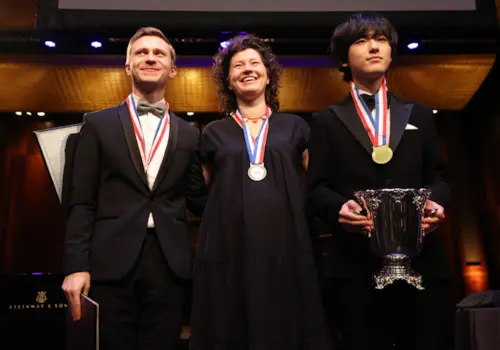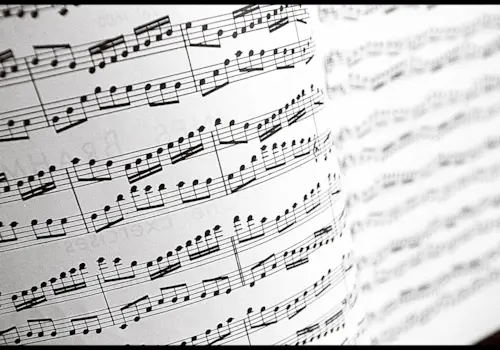Welmar, a piano name familiar to generations of British pianists, has returned offering musicians an alternative to the homogenous sound of modern instruments in the form of its legendary warm and sonorous tones. John Evans finds out more.
The news is particularly significant being as this is Welmar’s centenary year, the maker was founded in 1925, in London. It quickly established itself as a quality name representing ‘the best of British’, making pianos synonymous with a responsive touch, a golden tone and superb craftsmanship. Over the next 70 years, Welmar pianos were to be found in homes, schools and concert halls across Britain. However, by the 1990s, in the face of low price foreign pianos being imported, sales dwindled and production, sadly, came to an end. For the next 30 years, pianists found themselves denied the opportunity to enjoy the warm tone and soulful character of a new Welmar piano… until now.
Seized by the memory of the wonderful Welmar family piano he’d enjoyed playing as a child and frustrated by the brand’s absence Nick Rusling, the founder and CEO of Coach House Pianos of London and Swansea, decided to act. With the support of his team including his brother Simon Rusling, Head of Technical Services, he finally managed to acquire the Welmar brand with the aim of resurrecting the pianos for a new generation, giving pianists the chance to experience the Welmar difference for themselves. It was an idea that would require respect for the brand’s values, huge attention to detail and the revival of an age-old relationship.
‘Early on, we agreed that reviving the strong Anglo-European partnership that had underpinned the original brand by combining the renowned manufacturing expertise of the German Blüthner family with the attention to detail of the Coach House family, would be key to our plans,’ says Nick. ‘This way, the new Welmar range would be handmade in one of the world’s finest piano factories, using the finest European components. Then, once delivered to the UK, the instruments would be hand finished, assembled and prepared by an elite team of British craftsmen.’
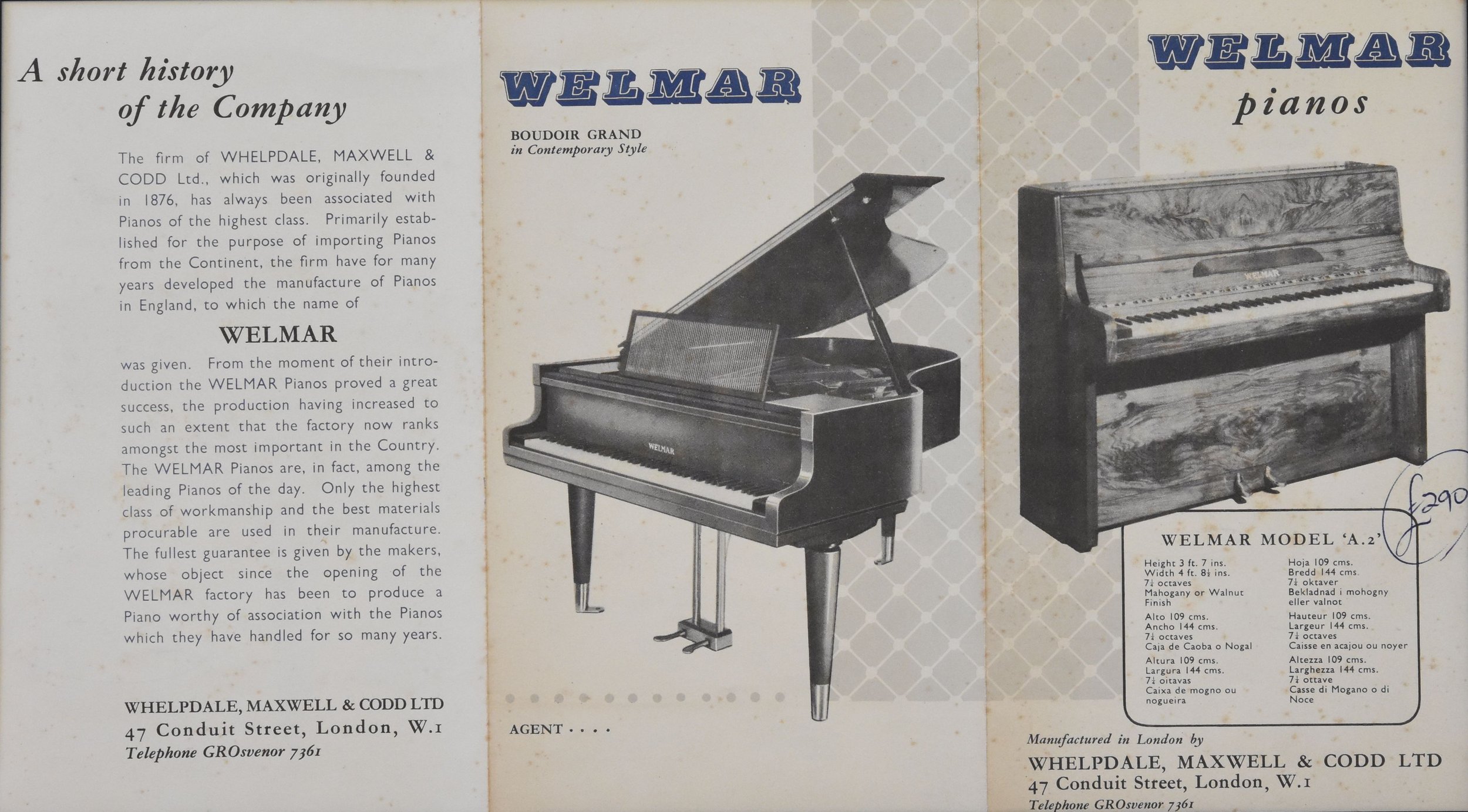
‘Reviving Welmar is something we at Coach House
Pianos have wanted to do for years’ – Simon Rusling,
Head of Technical Services, Coach House Pianos
Team effort
Welmar’s past relationship with Blüthner is a long and fascinating one. In fact, the association was originally with Whelpdale, Maxwell & Codd, the London-based owners of Welmar who imported Blüthner pianos. As a result, the company gained huge respect for the quality and tone of Blüthner instruments, qualities that influenced its own production methods and standards. Nick, Simon and the rest of the Coach House team were determined to rekindle this association for the benefit of the reborn Welmar brand.
That was the vision, and it became Simon’s responsibility to bring it to life. With more than 30 years’ experience working with pianos and with a passion for the Welmar pianos of his youth to rival Nick’s, it was a challenge he cheerfully accepted. ‘I was particularly excited by the prospect of recreating Welmar’s warm and singing tone, one quite different from many of today’s pianos,’ he says. ‘Tone itself is a product of the soundboard, the strings and the hammers and how they’re voiced, a technique used to alter the density of the felt heads to achieve a particular quality of sound. However, during the research and development process, we disassembled old Welmar pianos to examine their construction, we saw they possessed unique features that also contributed to their unique tone. Naturally, the new range of Welmar pianos have similar characteristics incorporated which produce the inimitable rich warm Welmar tone as previous.’
Having established the specifications of the new Welmar instruments the next step was to engage Blüthner in the production of the initial prototypes. It was an important moment. Fortunately, despite the passing years, the association that had once existed between Welmar and Blüthner and which was now revived, proved as strong as ever. ‘From the start, there was a great rapport between ourselves and Blüthner,’ recalls Simon. ‘They really understood what we were trying to achieve and the outcome was better than we could have imagined. The first pianos left Blüthner exactly to specification meaning that, once at our workshops, we could concentrate on finessing their touch and tone to achieve the Welmar sound we craved.’
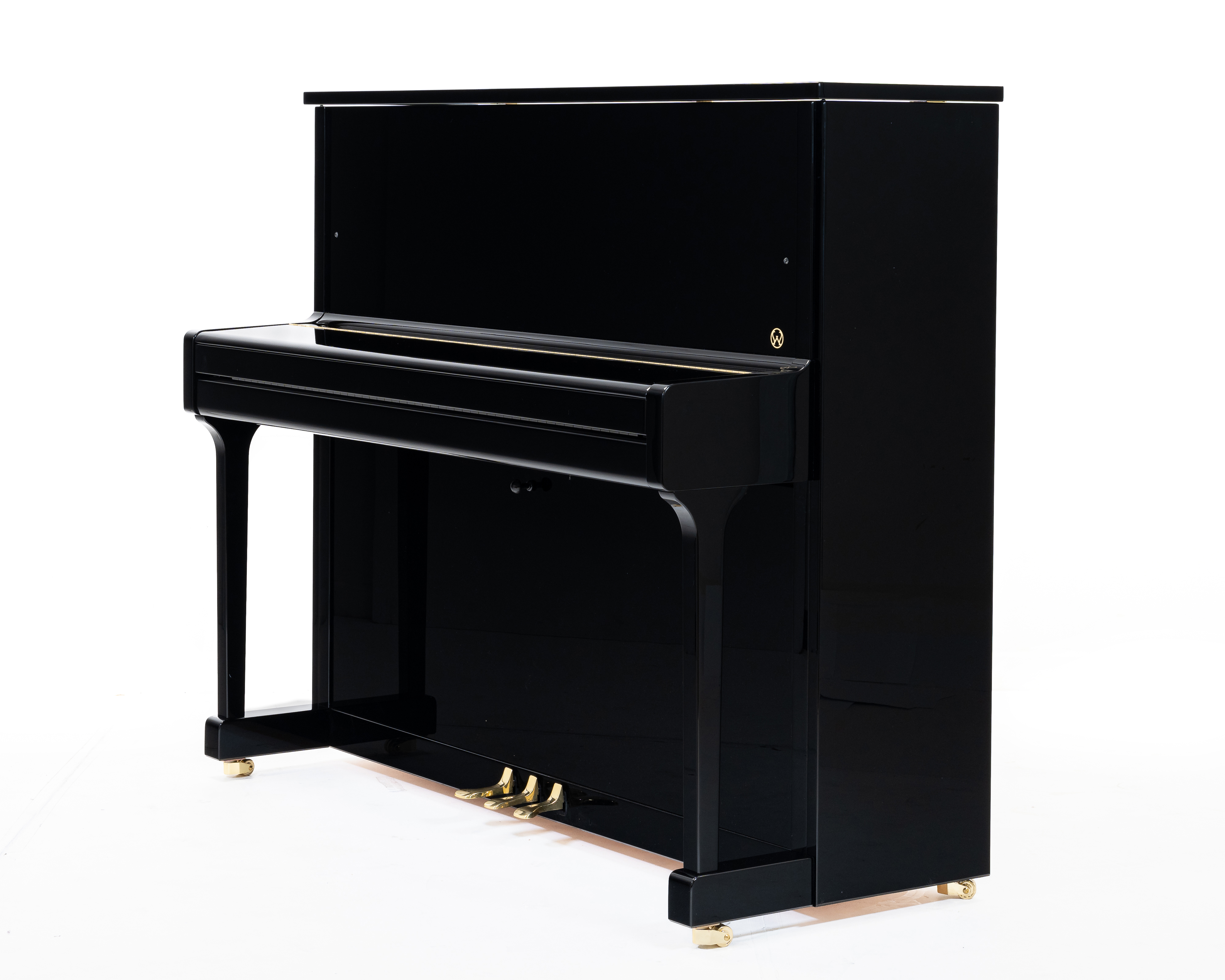
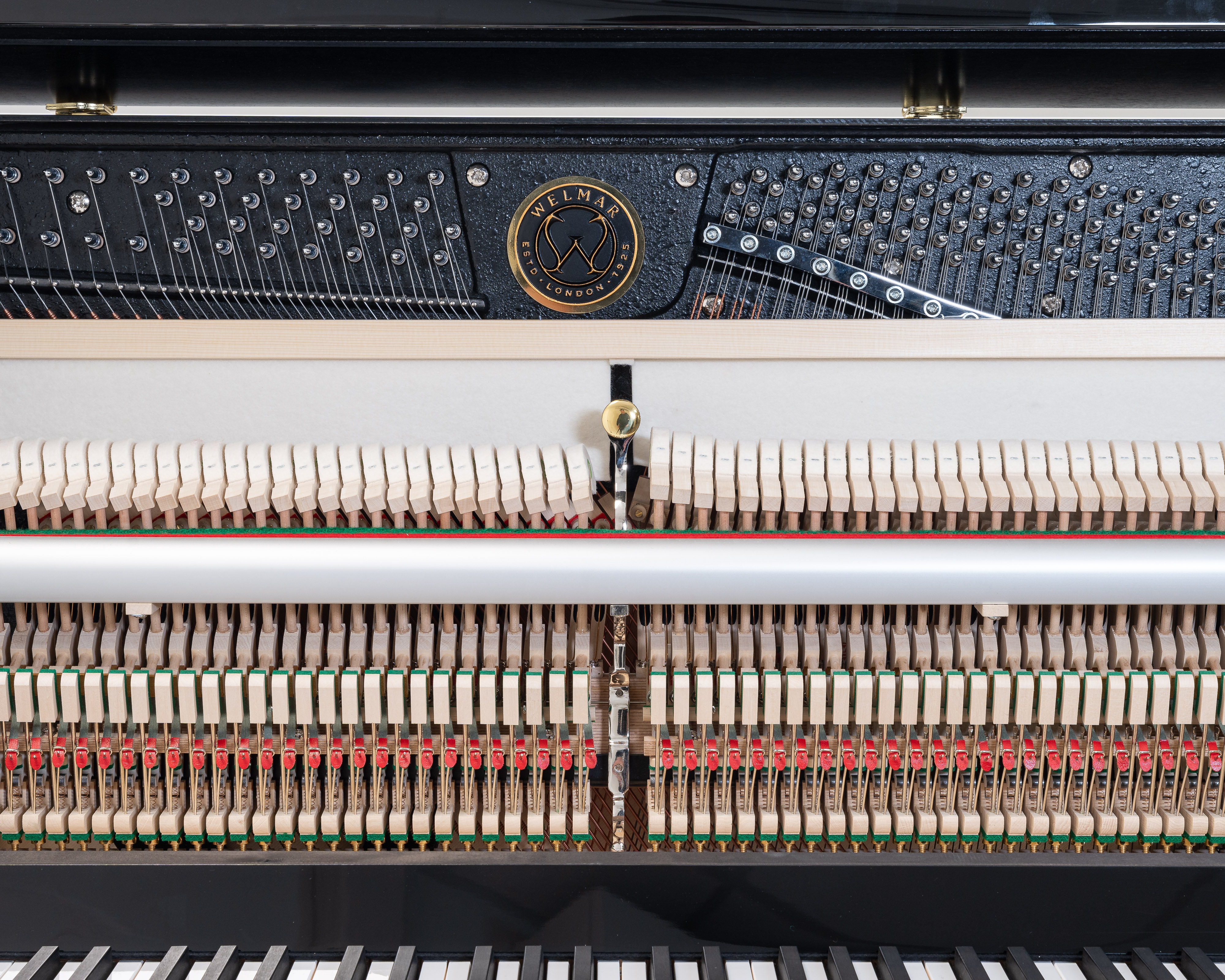
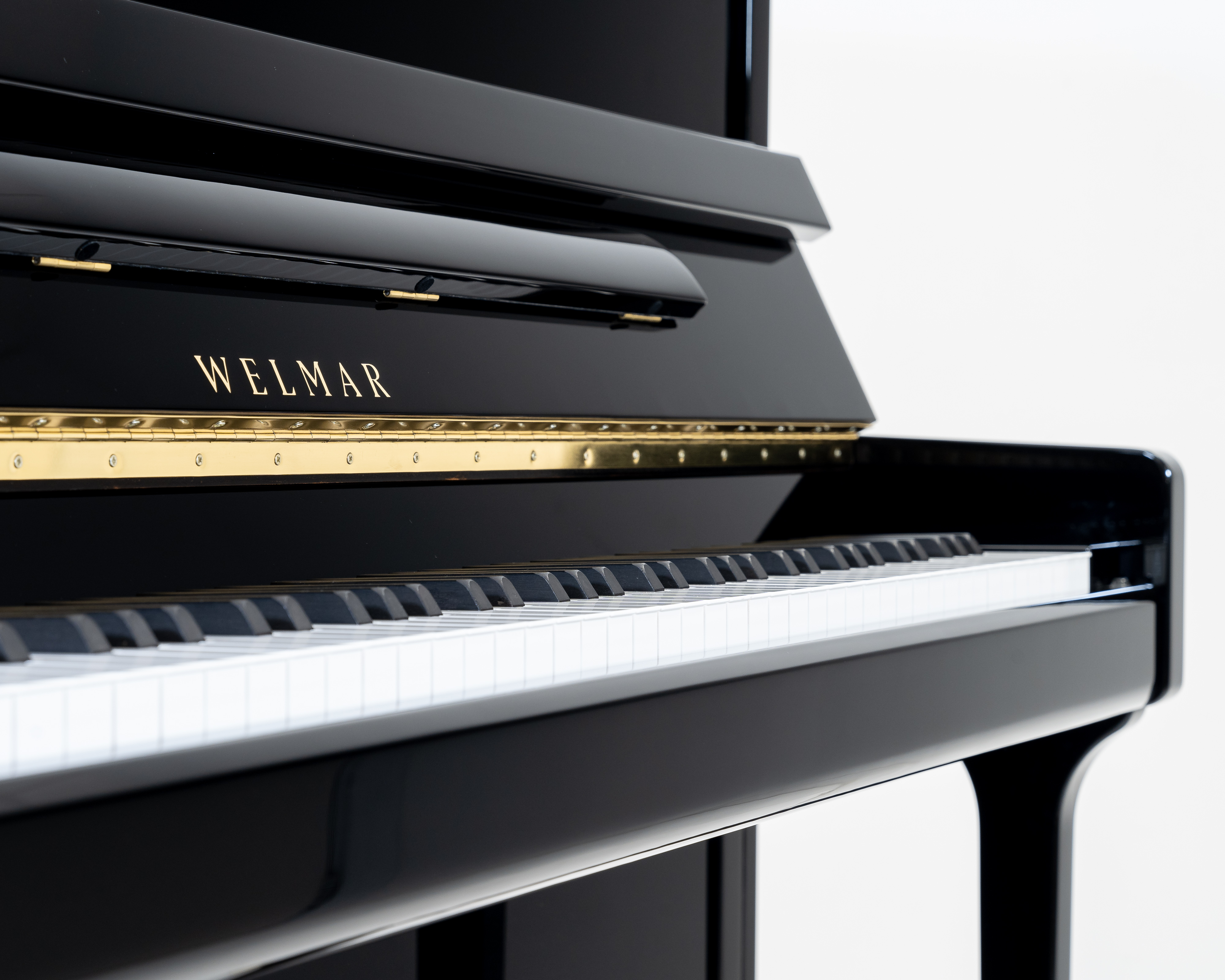
Tone for all to enjoy
And now, with the prototypes signed off and production underway, that golden Welmar tone and responsive touch can once again be enjoyed by pianists, courtesy of three new models initially. Sharing the dimensions of their forebears the present range comprises two uprights: model W18 (pictured, bottom), a professional quality piano 118cm tall and priced from £13,995, and model W24 (above), a 124cm tall instrument that takes the W18’s qualities one step further and which costs from £16,995. The third instrument is a grand piano (pictured, top), model W75 that measures 175cm in length and which, costing from £46,995, seamlessly blends Welmar’s renowned precision, musicality and British design. Examination of the casework and interiors of all three pianos reveals instruments that have been lovingly and meticulously crafted.
Naturally, a traditional gloss black finish is offered but in keeping with the Welmar brand of old, a wide choice of alternative cabinet woods, finishes and colours is available, the former including pyramid mahogany, French walnut, macassar and bubinga and finishes including high gloss, satin or even hand-painted. In all, there are 11 colours to choose from plus any bespoke requirements/customisation. The pianos can also be ordered with a range of digital features, enabling them to act as a Bluetooth sound system, play in silent mode or even self-play.
Simon and Nick are delighted with the reception the new Welmar pianos have enjoyed. ‘It’s been hugely positive,’ says Simon. ‘The first pianos sold immediately, which was enormously encouraging. I’m especially pleased with how their tone and touch have been received. I expected the older generation of pianists to recognise and enjoy the experience but I’m heartened by the fact that younger pianists are equally pleased. Not only them but studio engineers, people who spend their days working with sound, also respond very positively to the new pianos. Many have told us it’s a sound they’ve been looking for but until now had been unable to find. Reviving Welmar is something we at Coach House Pianos have wanted to do for years. It’s been a long journey but an exciting and rewarding one. At last, with the revival of the great Welmar brand and its values, pianists have a clear choice.’



